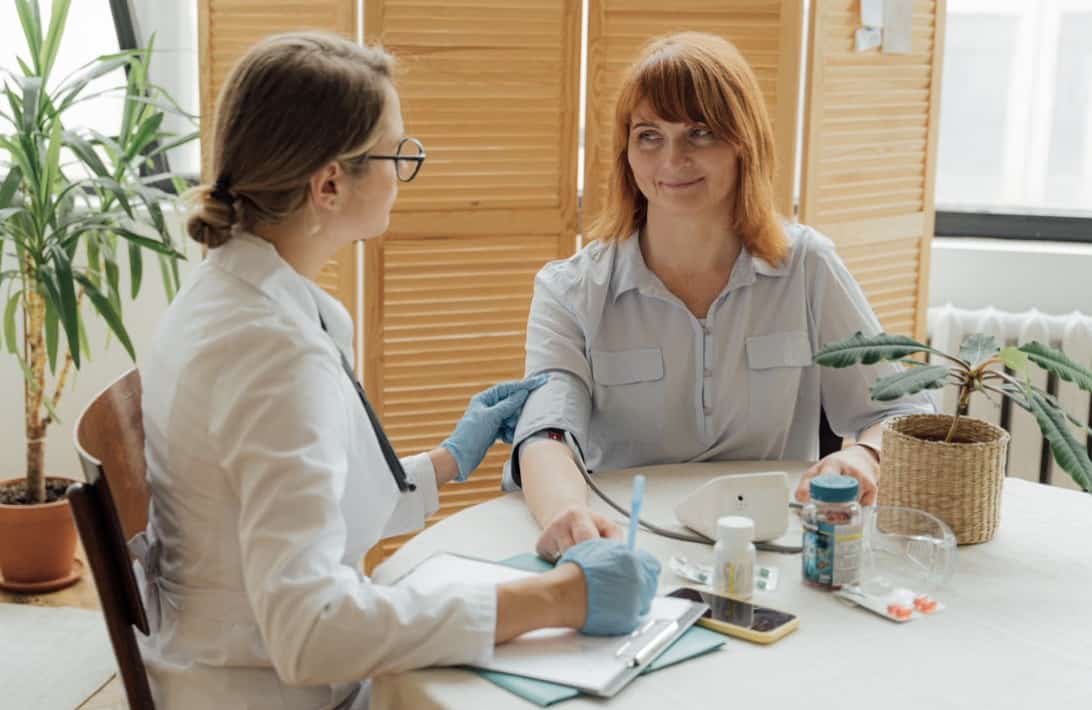The coronavirus pandemic triggered an unprecedented crisis, and the global healthcare infrastructure was blatantly unprepared to tackle this mammoth crisis. As the world came to grips with the situation, the pandemic highlighted existing failures, injustices, and inequalities within the healthcare sector.
With vaccines rolling out, healthcare sectors worldwide focus on improvement and innovation to fill gaps and ensure equal accessibility. In recent years, an acute shortage of skilled physicians has heightened the demand for highly trained, professional nurses. Nursing professionals are increasingly filling the gaps created by the scarcity of quality healthcare providers. Nurses play a huge role in spreading awareness, fighting misinformation, and promoting healthy lifestyles. Keep reading to explore ways in which nurses help their communities and spread health awareness.
Chapter Overview
1. Promoting Preventive Healthcare
Did you know that a large chunk of the global population does not enjoy access to preventive healthcare services? That’s right. Most rural and marginalized communities don’t have access to immunizations, cancer screening drives, prenatal or dental care, amongst other services. Many childbearing women and children do not enjoy access to quality preventive care, putting them at grave risk.
The roles and responsibilities of nurses are not limited to hospitals and clinical settings. Nurses are increasingly involved in spearheading community awareness programs around preventive healthcare. They collaborate with local organizations, non-profits, and community centers to educate the masses about vaccinations, screenings, and more.
2. Research & Development Initiatives
In the past, nursing careers were pitifully limited in terms of clinical significance, autonomy, and patient care influence. However, today, the dynamics have transformed dramatically, propelling nurses to the forefront of patient care processes.
Nurses are increasingly pursuing higher education to enjoy leadership roles and positions. Pursuing a BSN to MSN online program allows nurses to enjoy career advancement and make profound contributions to their field. Higher education, particularly doctoral programs, enable nurses to contribute to research and development.
They can devote their careers to research on community awareness drives, preventive care strategies, and improved life quality. This research will have a global impact in administering preventive care and spreading awareness across rural and marginalized communities. Nurses who pursue research-oriented careers make dynamic contributions to preventive healthcare services and awareness programs.
3. Influencing Community Health
Community awareness is instrumental in promoting improved life quality and fighting the risk factors of chronic illnesses. Awareness campaigns also help reduce the overall burden on healthcare infrastructures, community hospitals, and clinics. Nurses play a pivotal role in influencing community health and driving awareness campaigns.
They also collaborate with the authorities to ensure the implementation of federal health plans and initiatives. For instance, in recent months, the world witnessed the rise of conspiracy theories and misinformation surrounding the COVID vaccine. Nurses collaborate with community leaders to fight misinformation to promote vaccination and screening drives to reduce healthcare risk factors.
Nurses undergo training to understand cultural self-efficacy prevalent in various ethnic and racial communities. This understanding equips them with the tools and resources to improve healthcare outcomes and spread awareness across multicultural communities. Health beliefs and practices vary across cultures, creating barriers that prevent individuals from benefiting from preventive care.
Nursing professionals fight these barriers and spread awareness across culturally diverse populations.
4. Volunteering & Awareness Drives
Nurses volunteer their time and services to promote quality healthcare and awareness within their communities. Their role extends beyond traditional patient care and clinical settings, as they actively volunteer to improve community health statistics. Many nurses volunteer their medical expertise and resources to reduce risk factors within their community.
For instance, nurses can attend community events to speak on health concerns, such as diet and nutrition and chronic illnesses. In recent months, nurses have used social media and online spaces to spread awareness on handwashing, sanitizing, and social distancing. Pandemics, viruses, infections, and chronic illnesses give rise to uncertainty, and nurses help communities fight this uncertainty with knowledge and expertise.
Nurses also offer health screening drives, and they engage other community members in fundraising efforts to improve healthcare accessibility. Naturally, they also act as informal advisors to their family, friends, and community members.
5. Setting a Precedent
Nurses are trusted, reliable members of the healthcare community and people look towards them for support and information. They are a reliable resource for advice and consultation as they are more reachable than other healthcare providers.
Nurses set a precedent for community leaders and families, encouraging them to adopt healthy and mindful practices. They set a powerful example for others to follow by promoting health and wellness outside traditional clinical settings. Their dedication to performing their responsibilities outside their workplace is inspiring and a sad reminder that they don’t get enough credit.
Conclusion
Nurses are reliable pillars of a community, and from adults to adolescents, everyone relies on them for support. These hardworking professionals devote considerable time, effort, and resources to community awareness and betterment programs. Indeed, nurses play monumental roles in improving healthcare accessibility and promoting equal healthcare protection for all.
In most rural and marginalized communities, hospitals are short on doctors, and nurses shoulder enormous patient care responsibilities. In such communities, nurses fight against insurmountable odds to promote healthcare equality and administer quality preventive care.

